The World Head Injury Awareness Day falls on March 20th every year and it looks at the number of people who suffer from a mild bump on their head to severe brain injury. The purpose of this day is to remind us of how we could reduce accidents and brain injuries if we are mindful.
Head injuries in children can be a serious concern and require prompt medical attention. Young children are more susceptible to concussion than adults are, not only because they are more likely to be active and involved in sports, but also because their brains are not yet fully developed and thus more vulnerable to injury.
A head injury is a traumatic insult to the head that may result in injury to either, the soft tissue, the bony structures or the brain itself. These injuries can occur from road accidents, falls, assaults or can be sports-related.
The aim of this day is to remind us how and where possible we could play our role in reducing accidents and brain injuries.
World Head Injury Awareness Day advocates the correct usage of helmets and seat belts, which can significantly prevent or lessen trauma to the head in accidents.
If your head suffers a fairly mild injury, in sport, a vehicle accident, or from a simple slip and fall, it can cause symptoms you don’t expect. If it has not been addressed, it may have long-term consequences.
Head injuries can inflict major damage to the central nervous system and our brain. Even minor head trauma can lead to serious complications should the correct care and treatment not be received in time. Injury to the head can result to anything from concussion, memory loss to severe paralysis and even death. Many people are partially or fully paralysed, simply due to them not wearing the appropriate head gear at the time of the accident. Interestingly, serious brain damage can occur even if the skull remains intact.
Symptoms to look out for:
- Physical symptoms like headache, nausea or vomiting, drowsiness or fatigue, problems with your speech, dizziness or changes in sleep patterns.
- Cognitive symptoms like irritability, mood swings, a feeling of tiring easily, depression, a feeling of being confused or dazed, or an inability to concentrate.
- Sensory symptoms like blurred vision, ringing in your ears, changes in taste or sensitivity to sunlight and other bright lights, or sounds, you may need medical attention including vestibular rehabilitation therapy.
When to be worried:
- If the person can’t be roused within the first 6 hours of the injury occurring.
- If there are behavioural changes i.e aggression.
- If there is a loss or decreased level of consciousness.
- If there is a severe headache with projectile (fountain) vomiting.
- If there is speech difficulty.
What to do:
- Anyone with an injury to the head needs to be monitored for at least 24 hours.
- Call for help or transport the person to the hospital if their symptoms worsen.
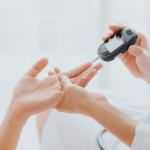
Managing a Diabetic Emergency
A quiet coffee break turned critical in seconds.Trauma nurse Catherine Rodwell shares how quick action—and a teaspoon of syrup—helped save a life during a sudden diabetic emergency. Whether you’re a parent, teacher, or just someone who wants to be prepared, this story is a powerful reminder of why first aid
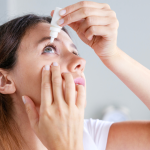
Clear Vision: Eye-Injury Emergency Steps
Your eyes are delicate and exposed, making them especially vulnerable to sudden injuries — whether from chemical splashes or small foreign objects like dust, metal shavings, or wood splinters. Knowing how to respond quickly and correctly can protect vision, reduce damage, and prevent long-term complications. Here’s a simple guide to

Strap In for Safety: Master Baby Car Seat Use
A correctly installed, ECE-approved car seat is your child’s first line of defense on the road. Misuse or poor installation contributes to preventable injuries every year. This guide reflects South African standards based on ECE R44/04 and R129 regulations, so you can choose, install, and adjust your baby’s car seat
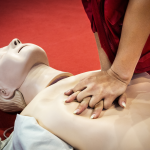
Why Everyone Should Learn CPR
In an emergency, the actions you take in the first few minutes can mean the difference between life and death. Cardiopulmonary resuscitation (CPR) is one of the simplest and most effective ways to help save a life — and yet, many people still don’t feel confident enough to use it
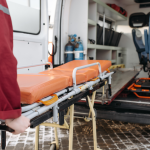
Who & When to Call Emergency Services
In an emergency, every second counts — but knowing when to call for help can make all the difference. Whether it’s a medical crisis, accident, or unexpected health scare, many people hesitate or second-guess themselves in the moment. That delay can be dangerous. The truth is, it’s better to call
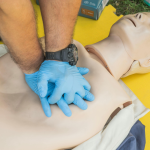
Top 5 CPR Myths Debunked!
When it comes to CPR (Cardiopulmonary Resuscitation), misinformation is everywhere. These myths can prevent people from stepping in to help when every second counts. At Survival CPR, we believe knowledge is power—and in this case, it could be life-saving. Separate fact from fiction and empower yourself to act confidently
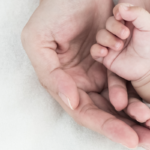
About
Welcome Founded in 2001 by Sister Catherine Rodwell, a seasoned trauma and ICU expert with extensive experience in medical evacuations across Africa, Survival® CPR is dedicated to empowering individuals with life-saving skills. Her mission is to equip parents, nannies, childminders, teachers, and employees with the knowledge and skills to respond

Scholars CPR and First Aid Course
Scholars CPR and First Aid Course Children can save lives! Our Scholars CPR and First Aid Course is tailor-made for young children from the age of 9 to 18. This vital course will enable young and older children to know how to handle an accident or emergency involving children and
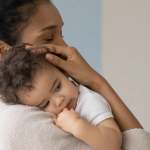
Baby and Child CPR and First Aid Course
Baby & Child CPR and First Aid Course Our Baby and Child CPR and First Aid Course is tailor-made for parents. This vital course will teach a parent how to handle an accident or emergency involving babies and children. You will learn how to handle all First Aid emergencies as


